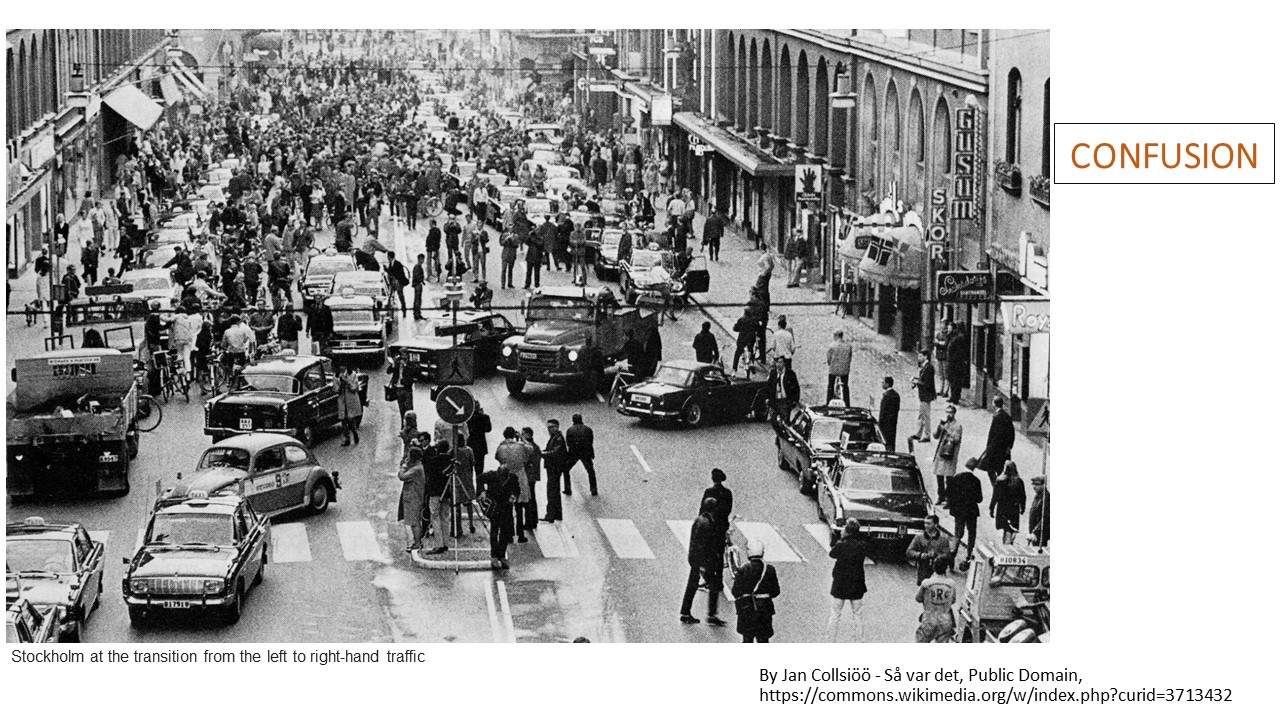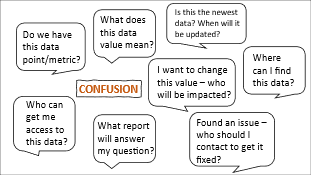 The growth and use of data is analogous to the growth and popularity of the automobile industry. In 1900, there were approximately 8,000 cars and only the wealthy could afford to purchase one. But by 1913, there were over one million gasoline cars being driven in the U.S. alone. Breakdowns were frequent, fuel was difficult to obtain, roads suitable for traveling were scarce and rapid innovation meant that cars quickly became worthless. Rapid growth in the industry bred confusion and management was needed to make driving a car both safe and efficient. Today, rules of the road and the interstate highway system are just givens. Thus, cars are not “just cars.” Cars are roads, maps, maintenance, training, culture, rules, police, gas stations, speed limits, accessories, invisible costs, fun, danger, vehicle standards, emissions, traffic regulations, laws, enforcement, fines … so many things that were not imaginable in the 1800s when the industry was developing.
The growth and use of data is analogous to the growth and popularity of the automobile industry. In 1900, there were approximately 8,000 cars and only the wealthy could afford to purchase one. But by 1913, there were over one million gasoline cars being driven in the U.S. alone. Breakdowns were frequent, fuel was difficult to obtain, roads suitable for traveling were scarce and rapid innovation meant that cars quickly became worthless. Rapid growth in the industry bred confusion and management was needed to make driving a car both safe and efficient. Today, rules of the road and the interstate highway system are just givens. Thus, cars are not “just cars.” Cars are roads, maps, maintenance, training, culture, rules, police, gas stations, speed limits, accessories, invisible costs, fun, danger, vehicle standards, emissions, traffic regulations, laws, enforcement, fines … so many things that were not imaginable in the 1800s when the industry was developing.
 Data is going through a similar explosion of growth, a growth spurred by development of the personal computer. Microsoft Excel was introduced in 1982, and it opened the world to automating repetitive tasks for crunching numbers, process automation and presenting data for businesses. Today we find ourselves immersed in an “analytics for everyone, everywhere” culture. But data are not “just data.” Data are systems, people, processes, IT infrastructure, governance, access, privacy, training, culture, communities of practice, invisible costs, standards, confusion, analysis, interpretation, fun, cool, danger, queries, munging, rules and responsibilities, politics … so many things that were unimaginable 40 years ago. Thus, management of our data is needed, and the Data Governance Council was created to do this for LLCC.
Data is going through a similar explosion of growth, a growth spurred by development of the personal computer. Microsoft Excel was introduced in 1982, and it opened the world to automating repetitive tasks for crunching numbers, process automation and presenting data for businesses. Today we find ourselves immersed in an “analytics for everyone, everywhere” culture. But data are not “just data.” Data are systems, people, processes, IT infrastructure, governance, access, privacy, training, culture, communities of practice, invisible costs, standards, confusion, analysis, interpretation, fun, cool, danger, queries, munging, rules and responsibilities, politics … so many things that were unimaginable 40 years ago. Thus, management of our data is needed, and the Data Governance Council was created to do this for LLCC.
